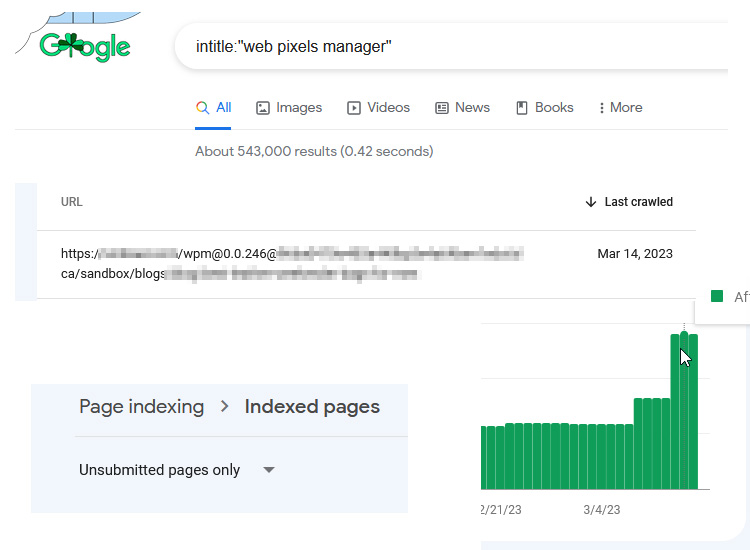Last Updated on November 26, 2019
Over the last few years, I’ve noticed something interesting.
In seasonal ecommerce industries, independent websites seem to drop in rankings during the off season, and regain the lost rankings during the peak seasons.
In comparison, the major players such as Amazon, Argos and Wayfair rank consistenly or improve on their respective positions during the off season.
This is fairly unsubstantiated theory crafting of sorts, but I’ve seen it occur in a few different verticals.
Here I’ll investigate some potential reasons why.
Sitewide User Experience Signals – Peak vs Off Season
Again this will be a little big of a “grey SEO area”.
We know that user metrics have some form of impact on the SEO of a website.
This being said, how would the signals change during the off season for a niche seasonal specific site:
- Higher Bounce Rate / Less Pages per Session – people are less likely to want to engage with the website during the off season.
- Lower Conversions – there are less incentives to “buy now” during an off season.
- Less Long Tail Searches / CTR – less people will be searching for specific long tail variations (due to a natural decline in all traffic) which will reduce the CTR scores of a page if it relies heavily on long tail vs generic terms (which niche sites often do).
- Less Recent Social Proof – reviews will often be less recent, making people more skeptical about buging.
How much does each of these impact your rankings?
Only Google knows, but they could well be factored into the Algorithm.
Brand Search Signals – Peak vs Off Season
Branded search naturally reduces during the off season.
Companies advertise less, people aren’t “thinking actively” about buying a certain product type, and so the amount of people searching for your brand terms + variations will decline.
There aren’t any proven studies into how brand search impacts SEO, but there are speculations that it could “validate” you as an authority.
If it is part of a quality based algorithm, then a reduced volume of it in the off season could lead to a reduction in rankings.
Link Velocity & Direct/Referral Traffic – Peak vs Off Season
During the peak season, you are usually advertising on multiple platforms, trying to get links from relevant high traffic websites, and generally doing PR to help drive those sales to the max.
This naturally increases metrics like inbound links, and referral traffic from other sources (social, websites, PPC, etc). Traffic has been suggested to be a ranking factor.
However during the off season, this isn’t going on, resulting in a big drop off in all of these metrics.
How Do Big Authority Sites Differ?
If we look at the above signals and compare them with what larger broad authority ecommerce sites experience, we can see that on every level they experience no drop in those signals.
They benefit from a product offering that suits all periods of the year (albeit on different pages), they have consistent brand search, consistent marketing (albeit different industries), and their user experience on site as a whole, will remain fairly steady throughout.
This could explain why larger broad ecommerce sites tend to not be affected by seasonal ranking fluctuations.
How Can We Stop This / Mitigate Damages
As this could represent a decent portion of sales that are simply filtered out due to Google biases, it’s important that we look at ways to minimise the damages.
Here are some ideas.
Off Season Sale & Advertising
During the off season, have the site dedicated to sales items, and market heavily for “making off season savings in the big sale“.
This should increase engagement, generate brand search, and be something you can market on social media for referral clicks.
Blog for News Jacking
You can generate PR in the off season by taking advantage of recent world events.
News Jacking involves producing content around current topics, in the hope of being mentioned and linked to in press articles.
The content can be published on a blog or content section of your ecommerce site.
You can learn more about news jacking here.
This could be a good way to generate inbound links during the off season, which can be funnelled into your main site using internal links.
Maintenance and Repair Higher in Funnel Content
In the off season, you may be able to attract engaged visitors by producing content around the care or maintenance of your product, or other topics around the use of it during the “off season”.
This will obviously be different for every industry, but you can generate content ideas by checking social groups, forums, Q&A sites, and by doing long tail keyword research.
Final Thoughts
I’d be interested to hear if you have experienced natural rises and falls in your seasonal ecommerce rankings, and how you work to mitigate the damages this may cause.
If you have any questions, then feel free to comment or email me at info@matt-jackson.com
If you’re interested in ecommerce SEO services, click here, I can help improve Shopify, Magento, Opencart, and other CMS based ecommerce sites.






This Post Has 0 Comments